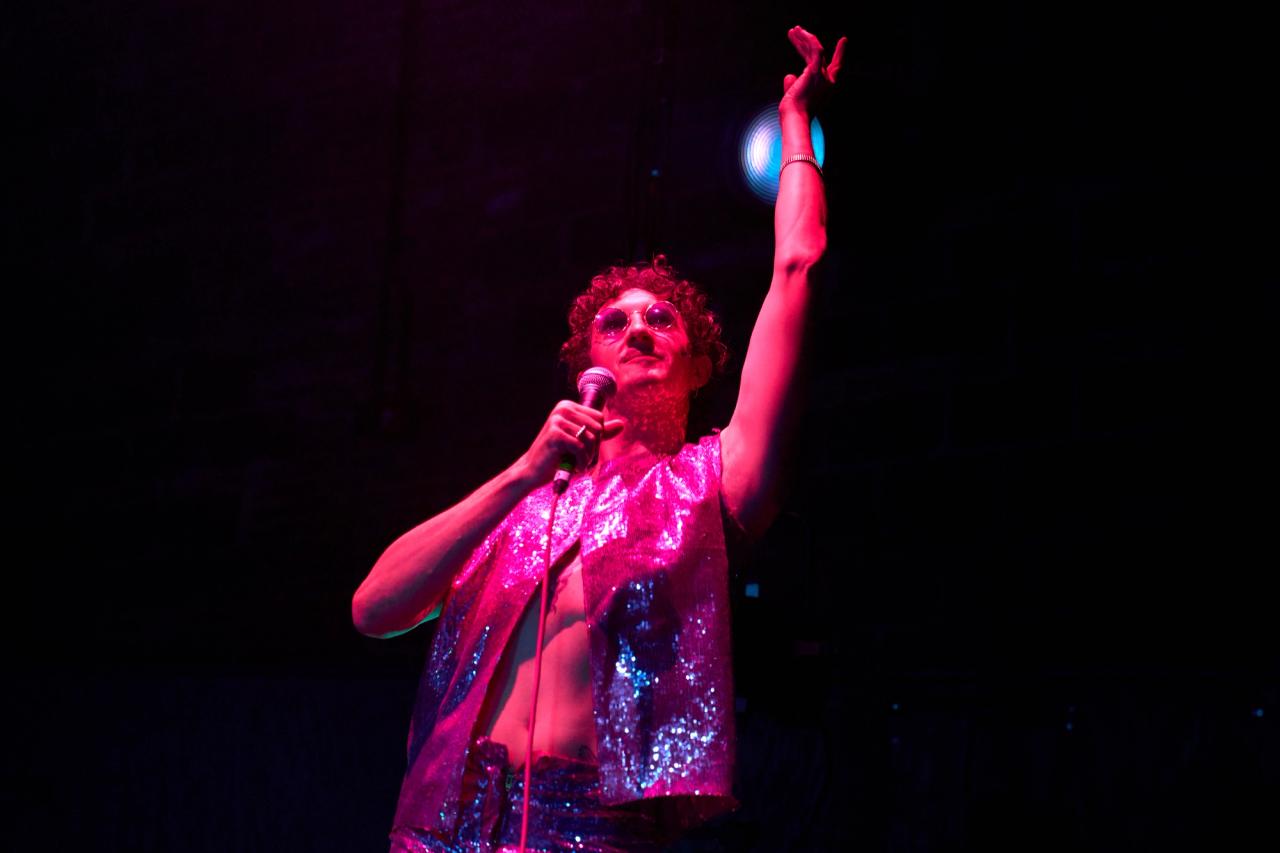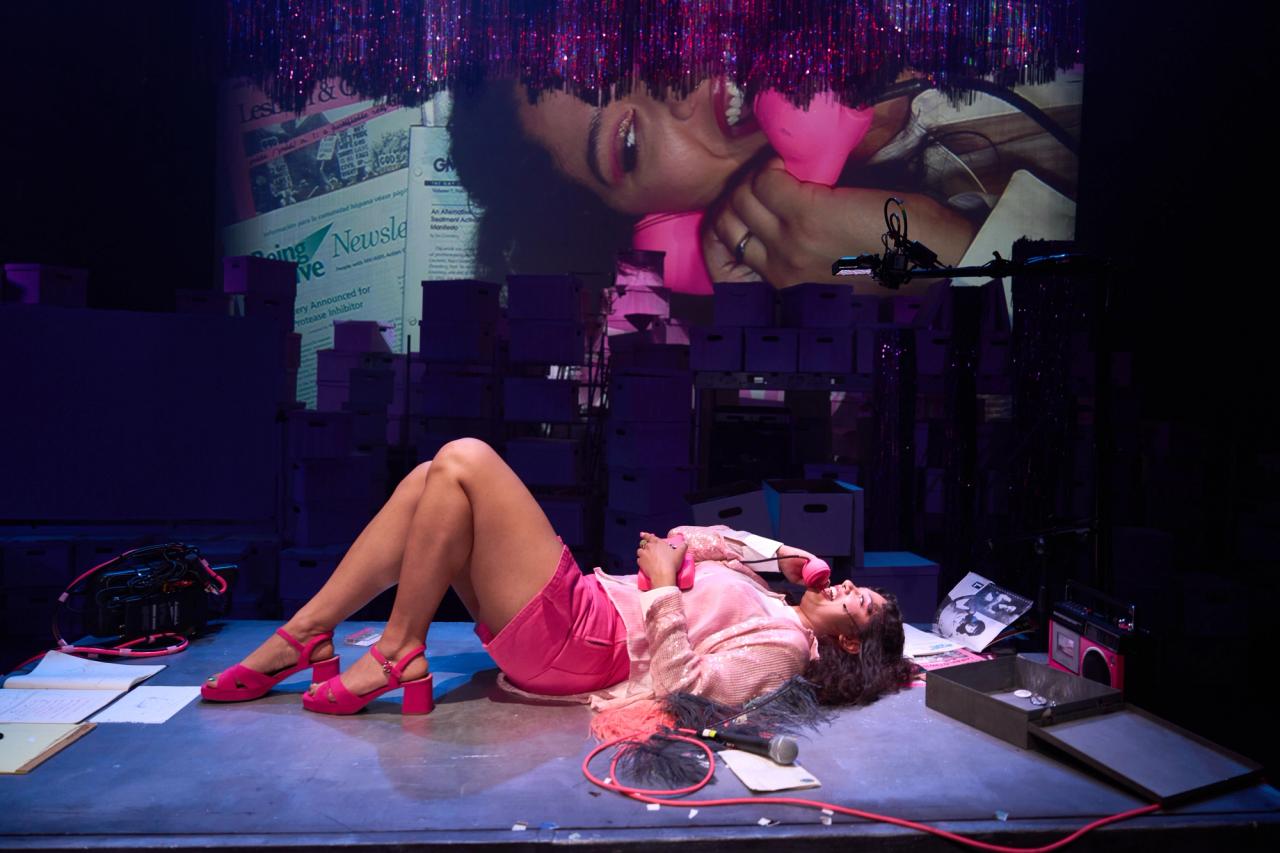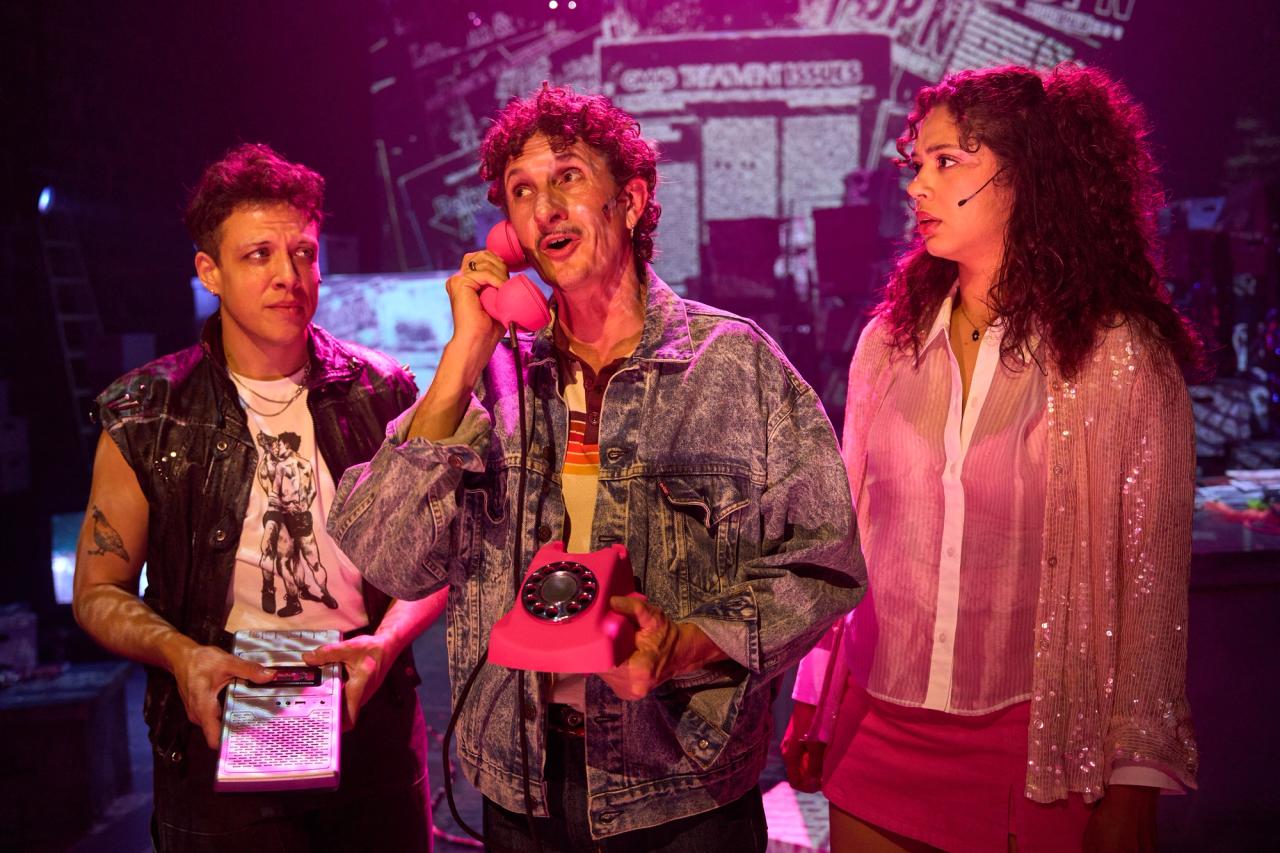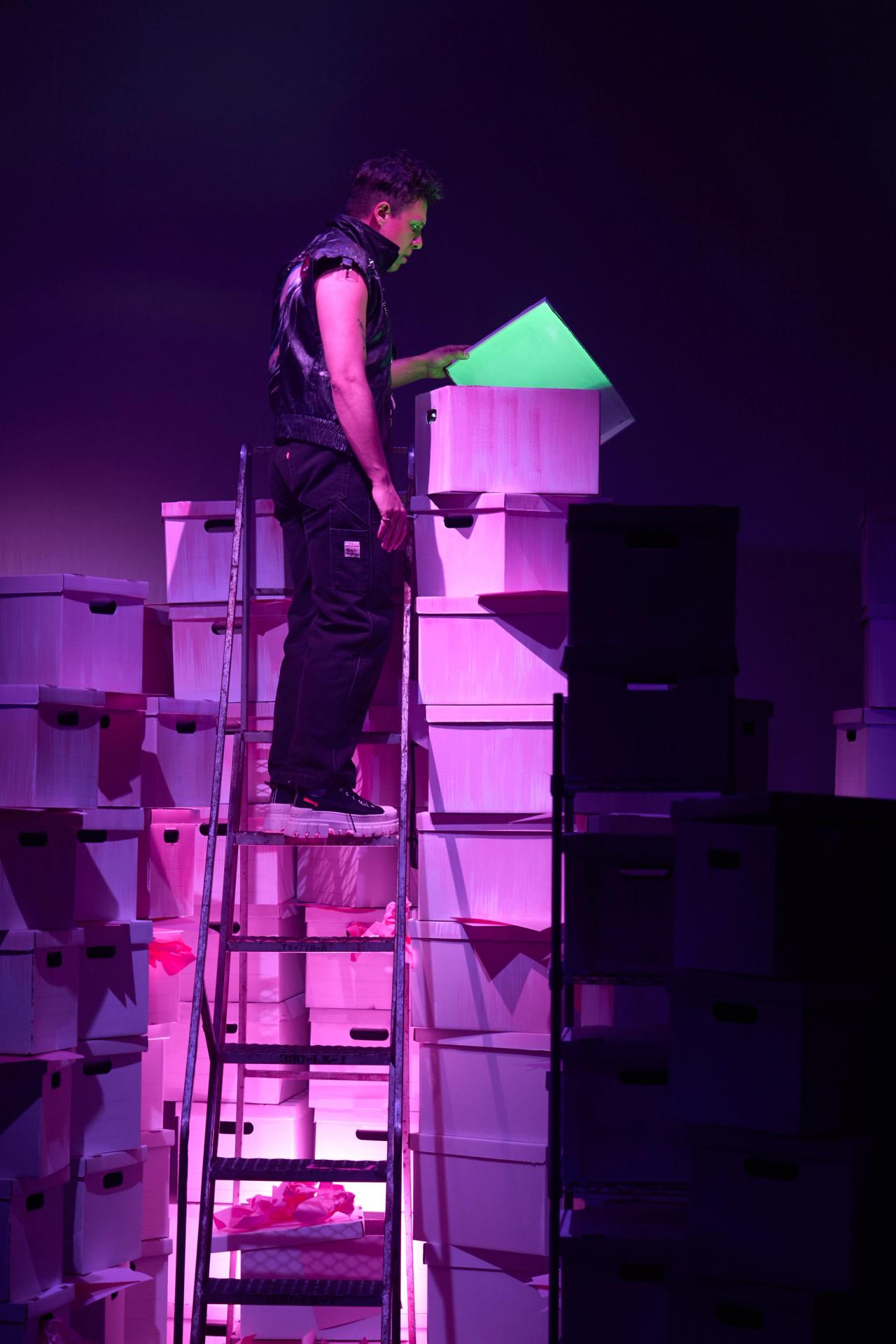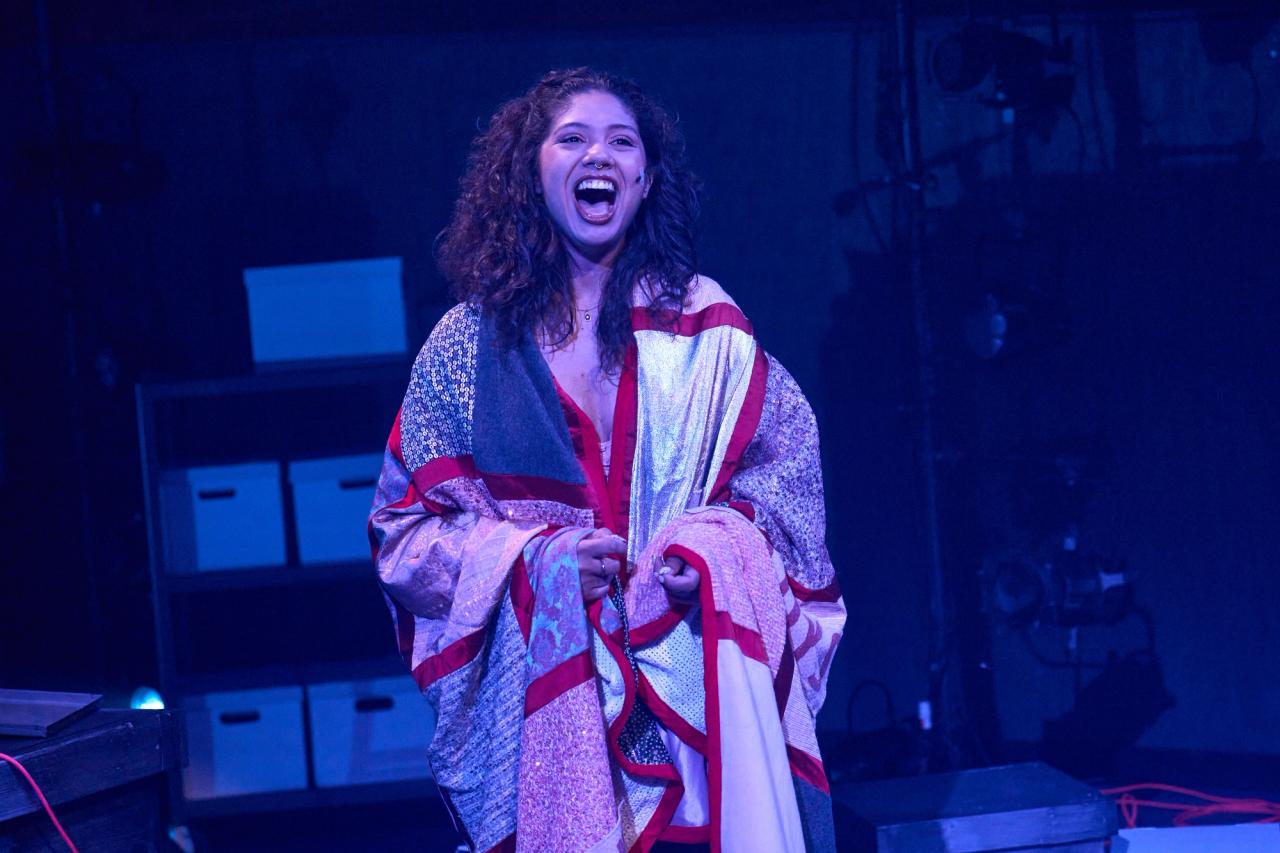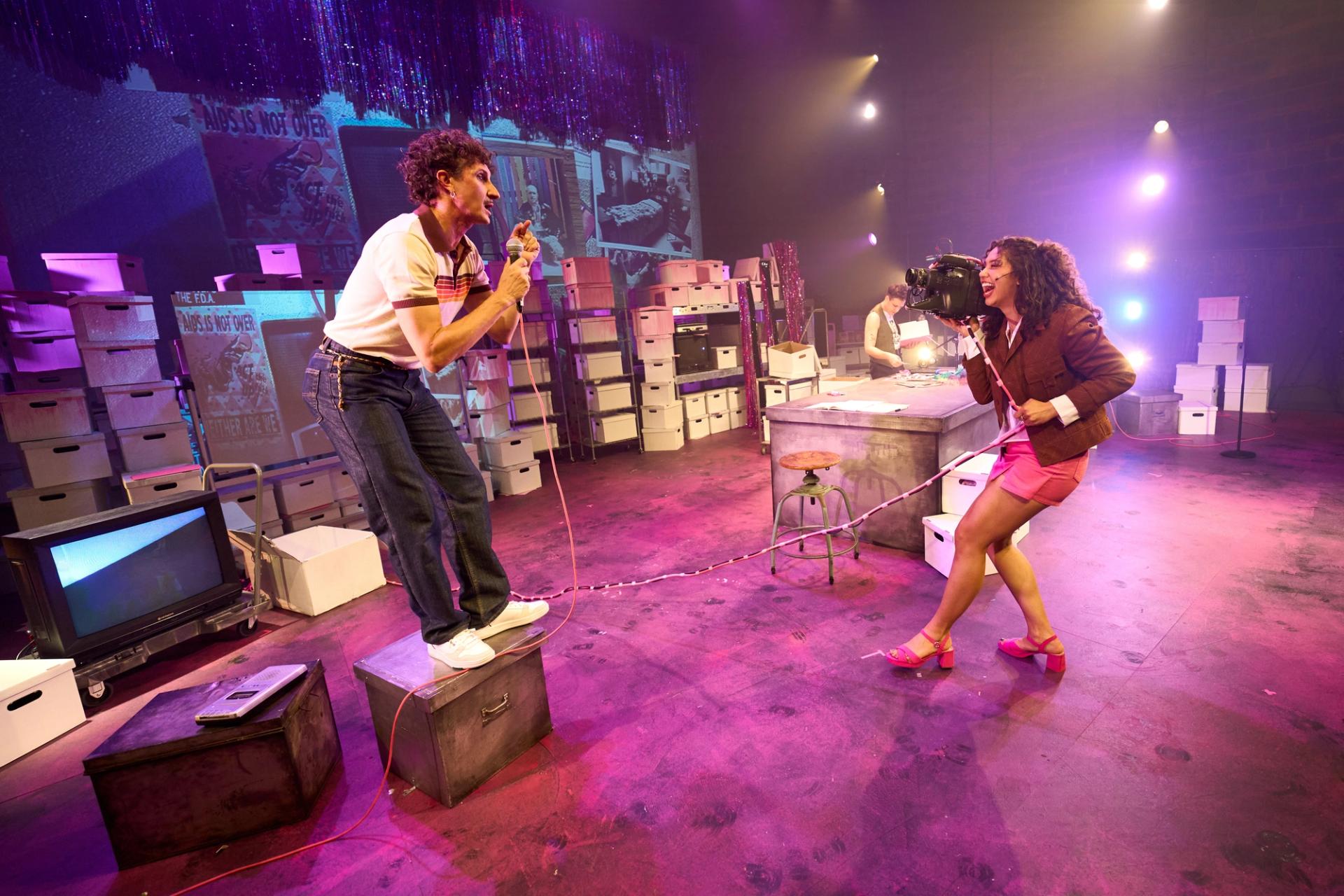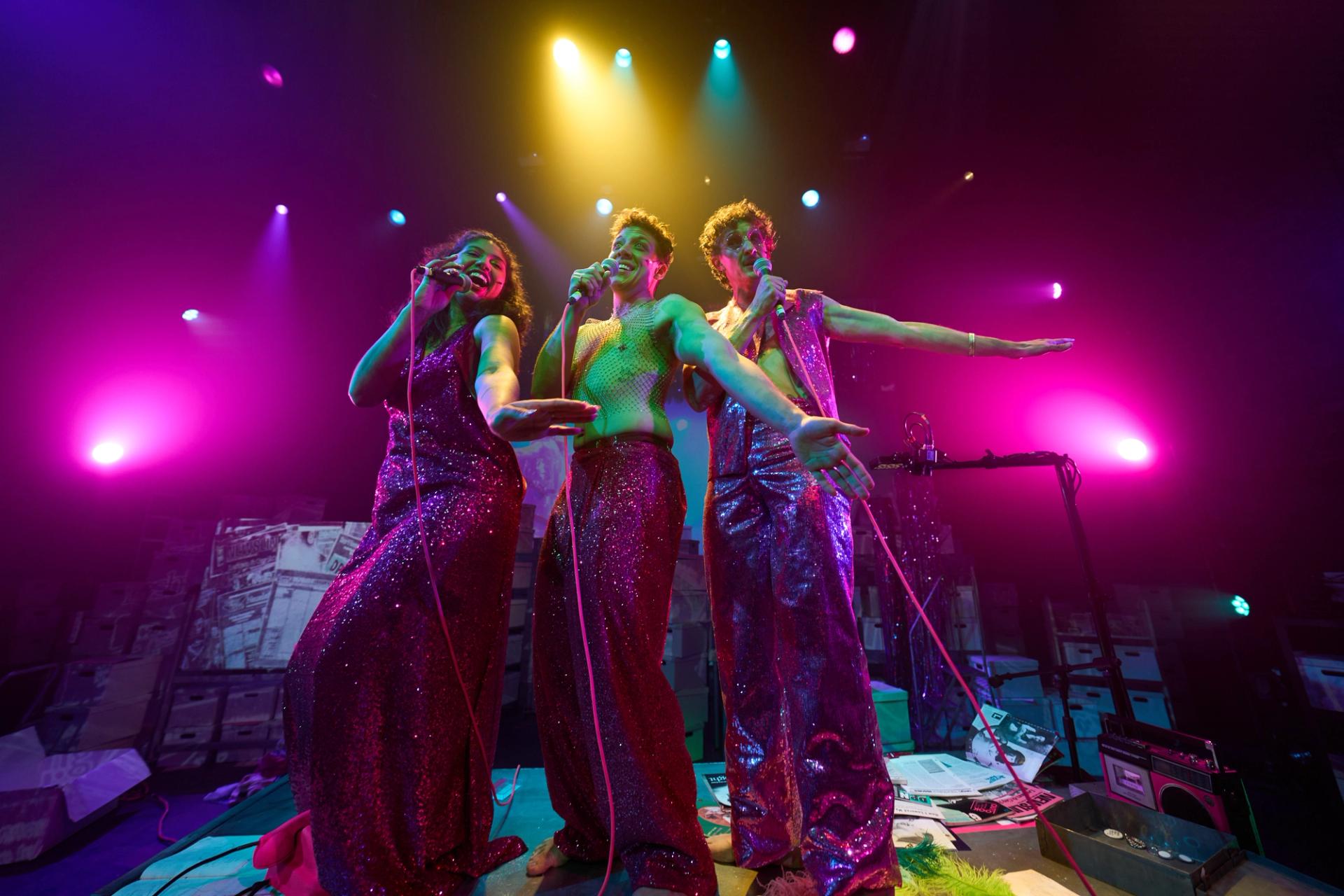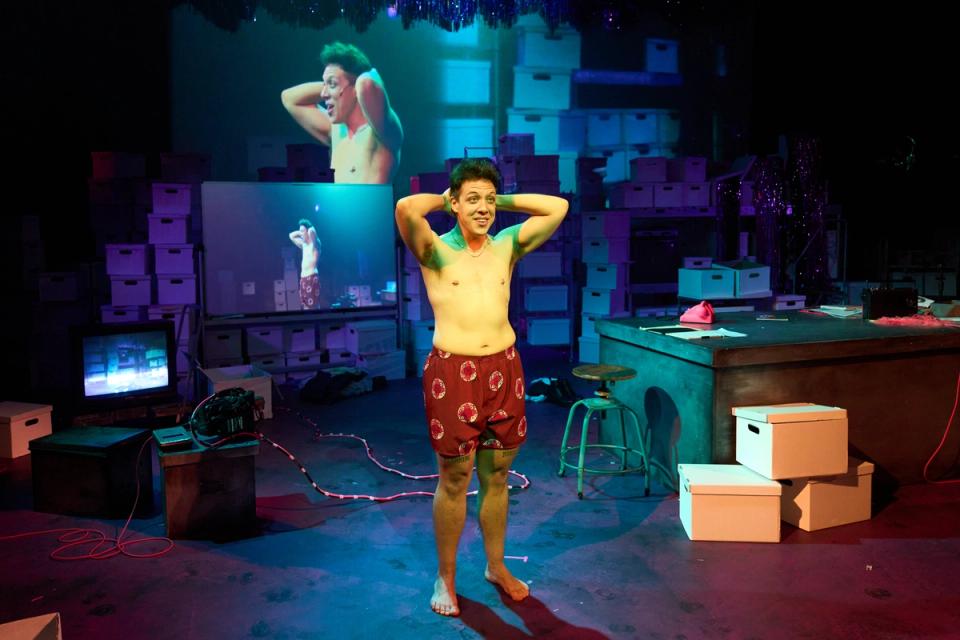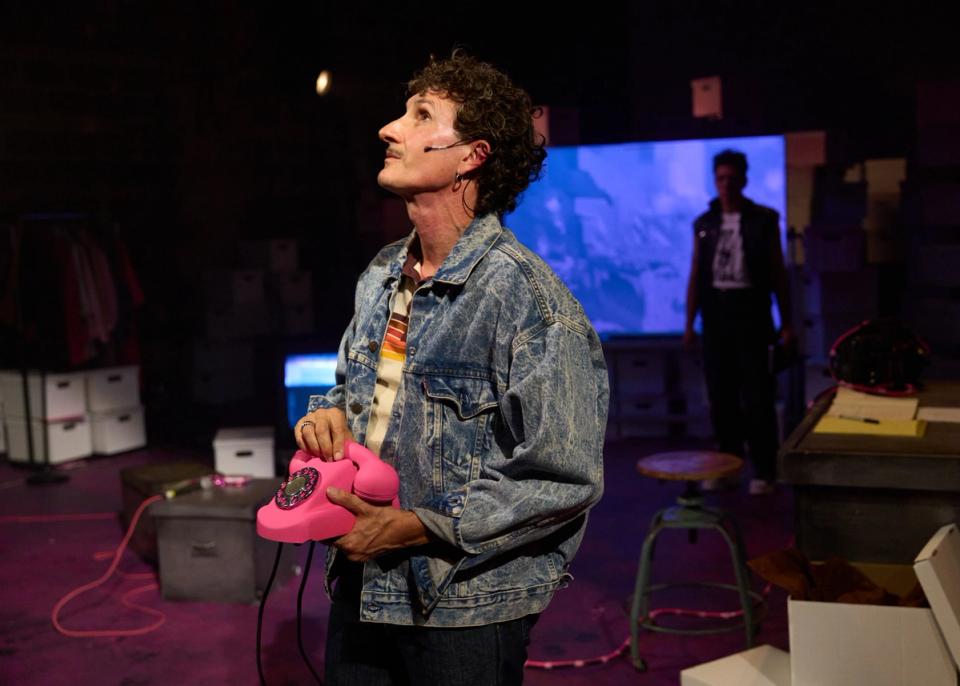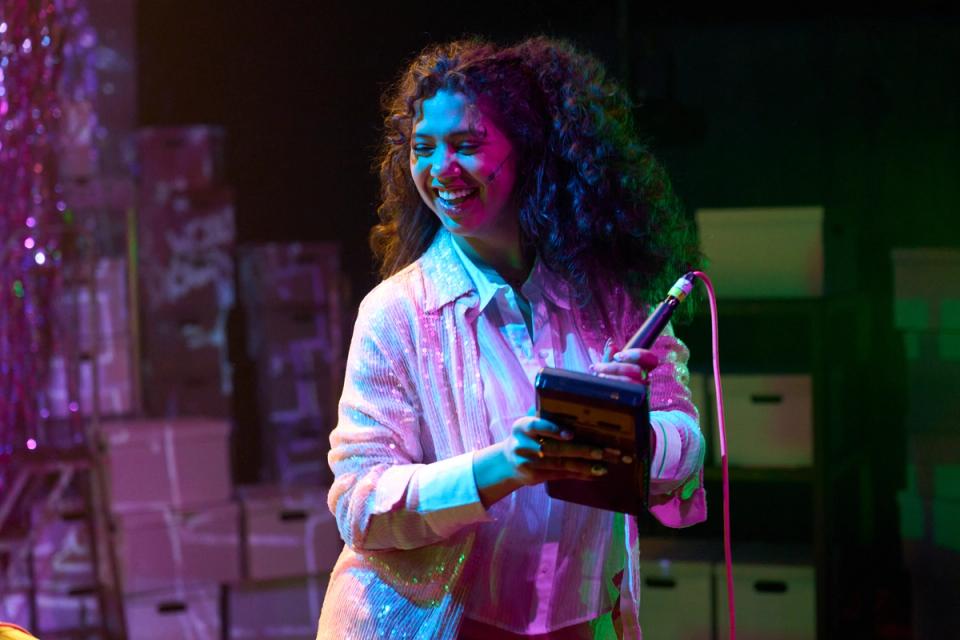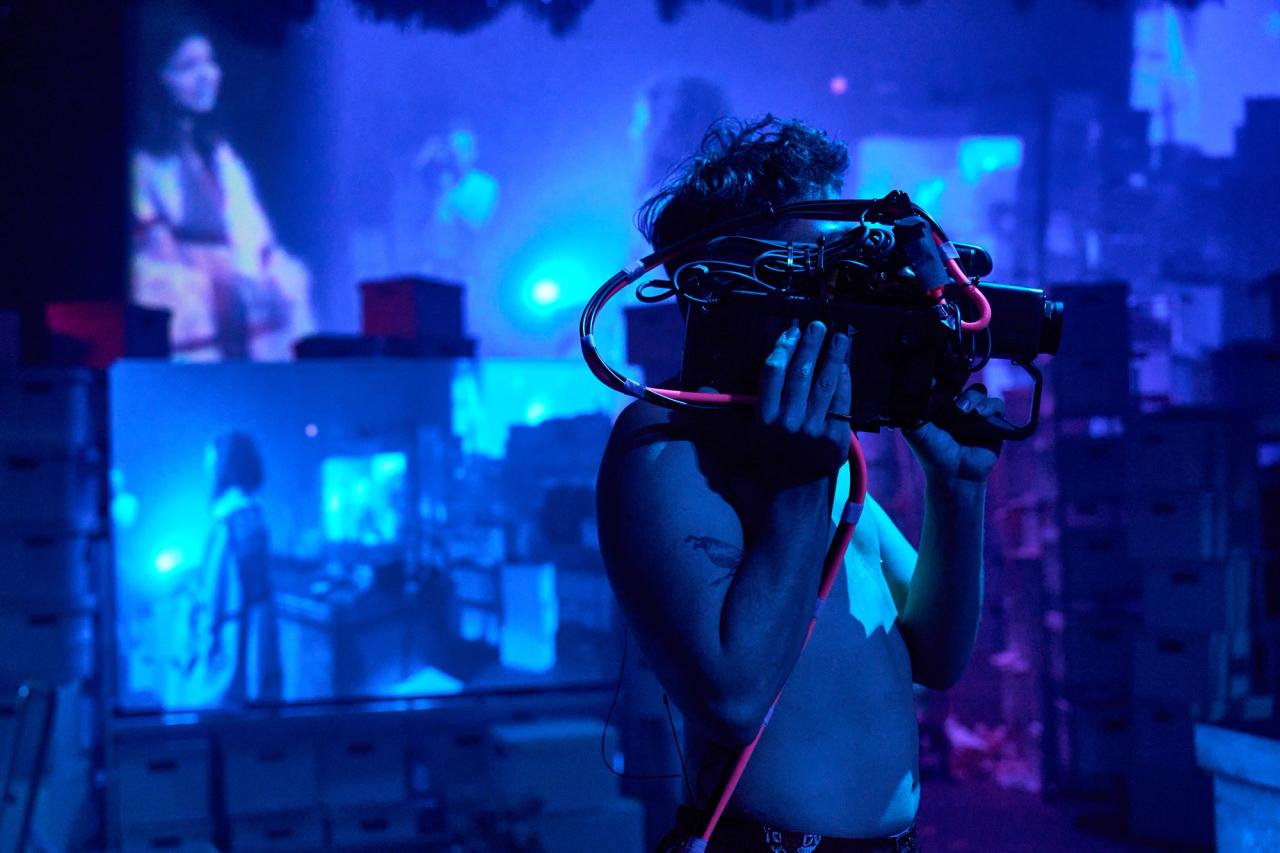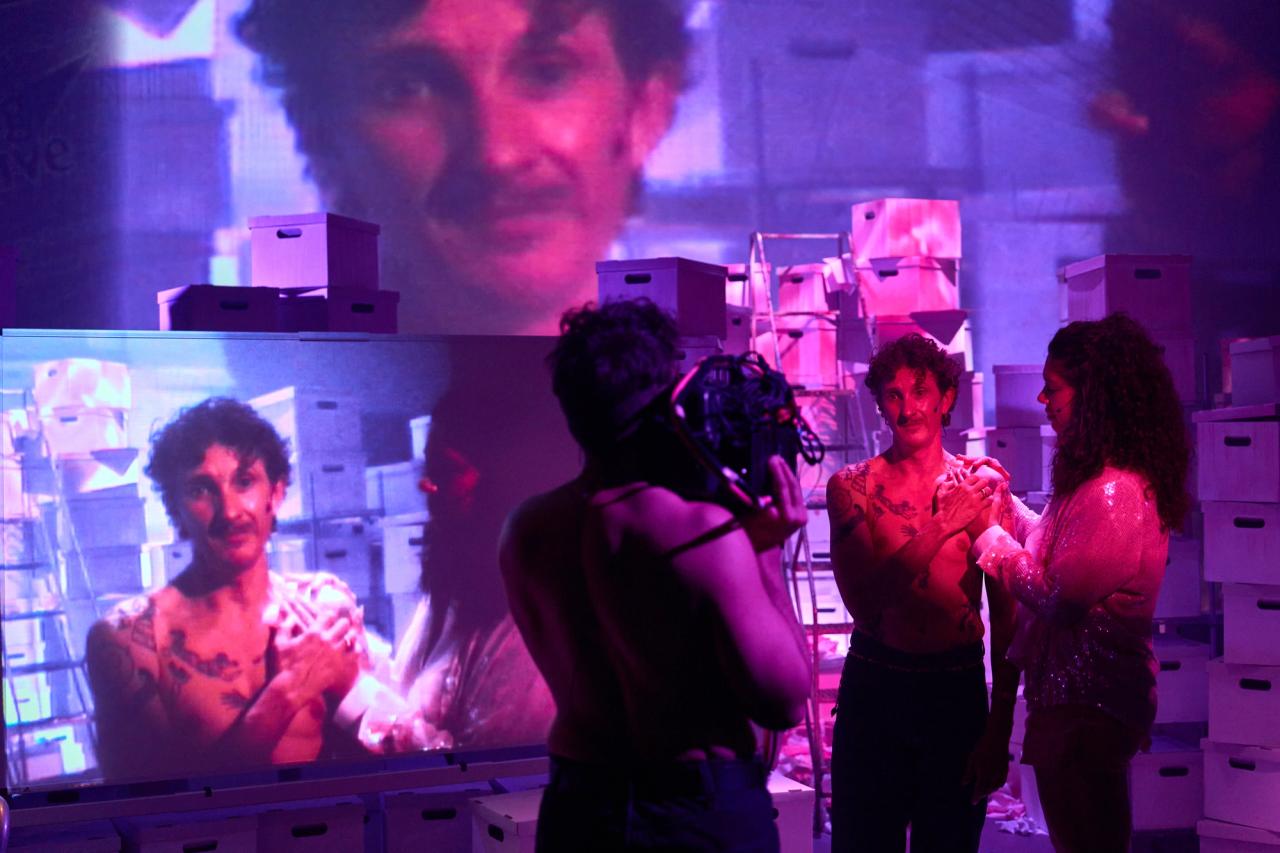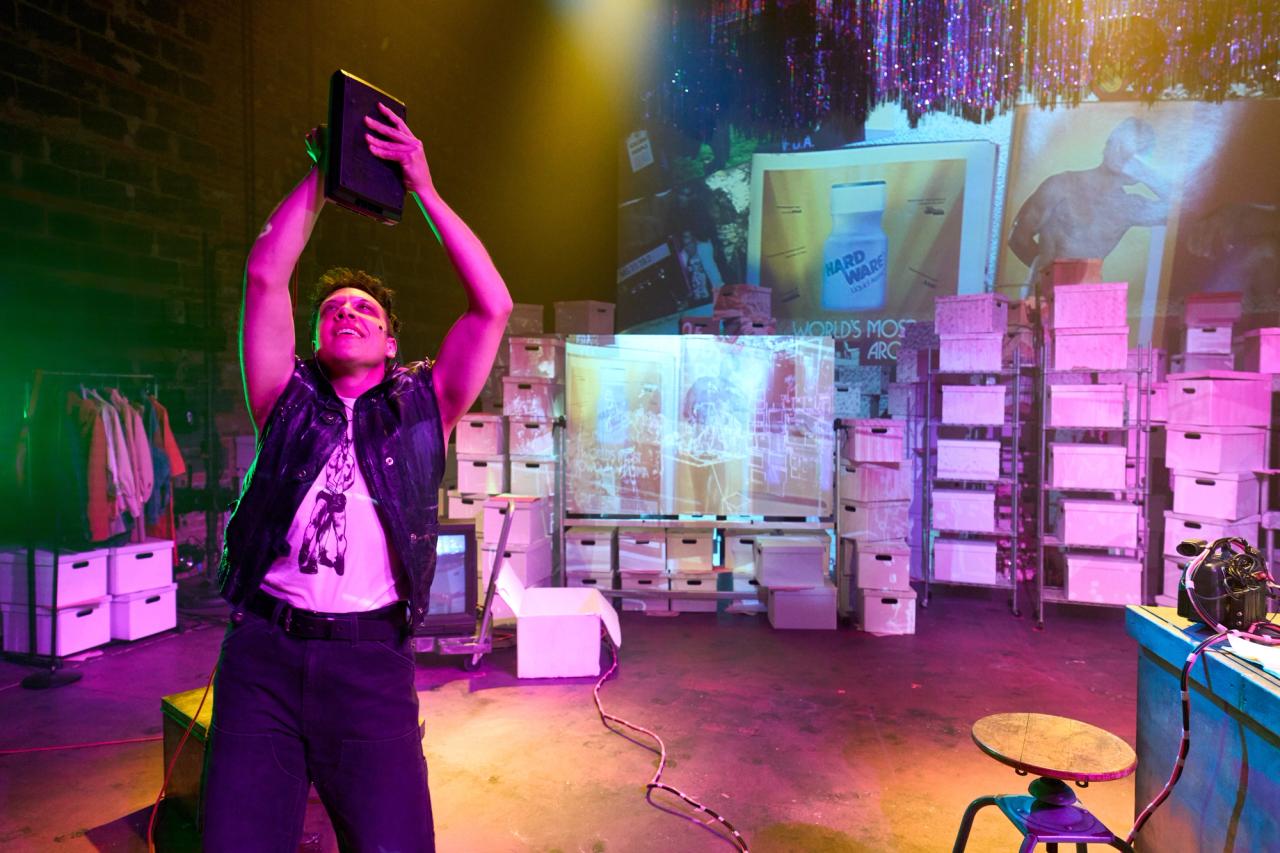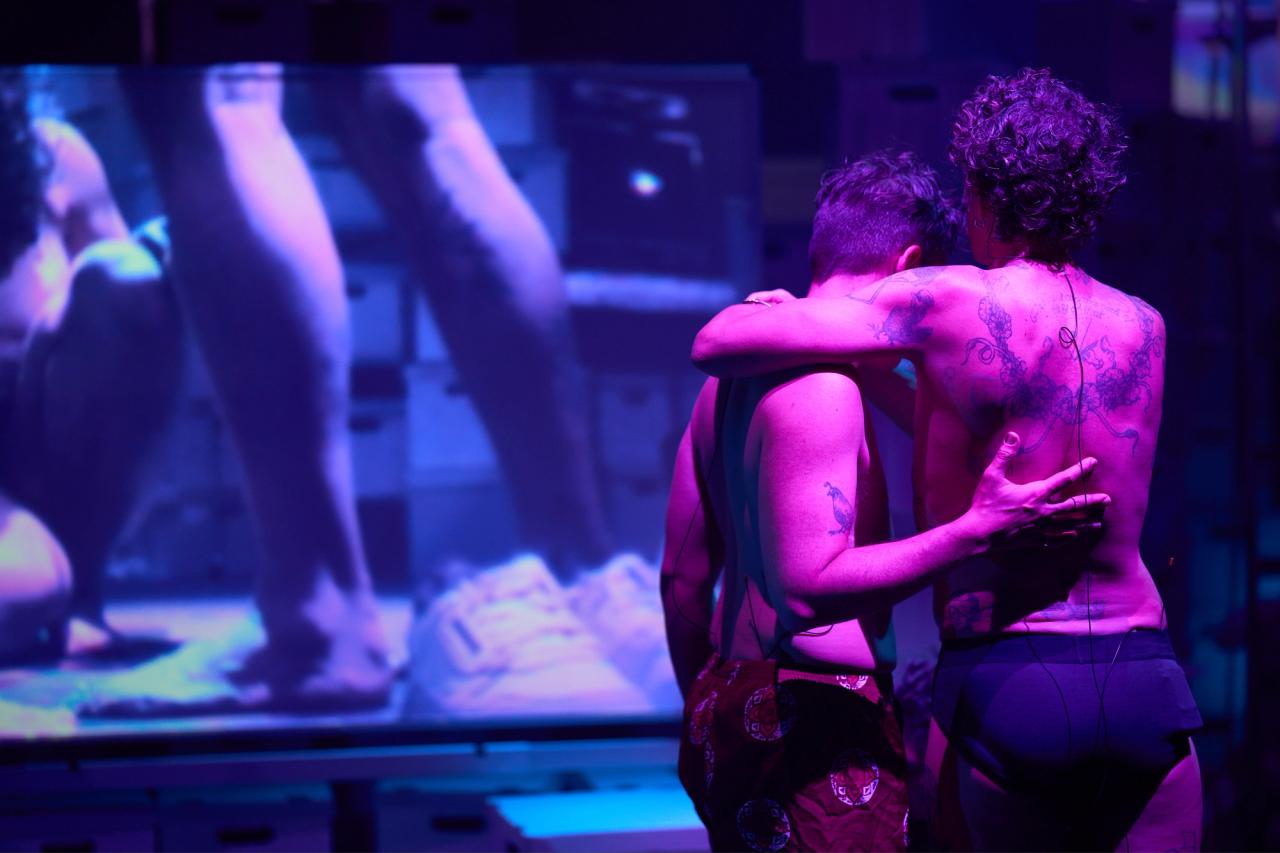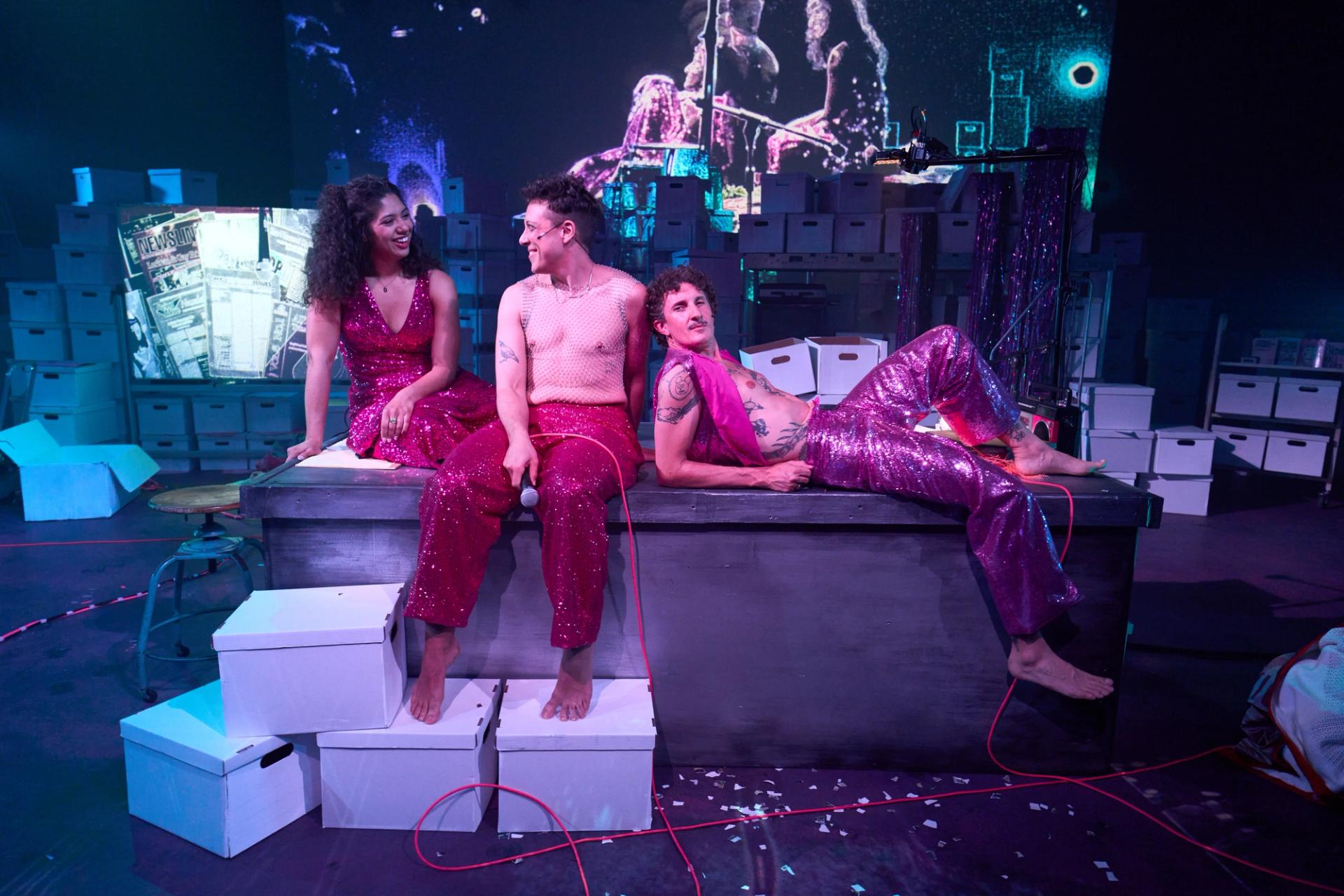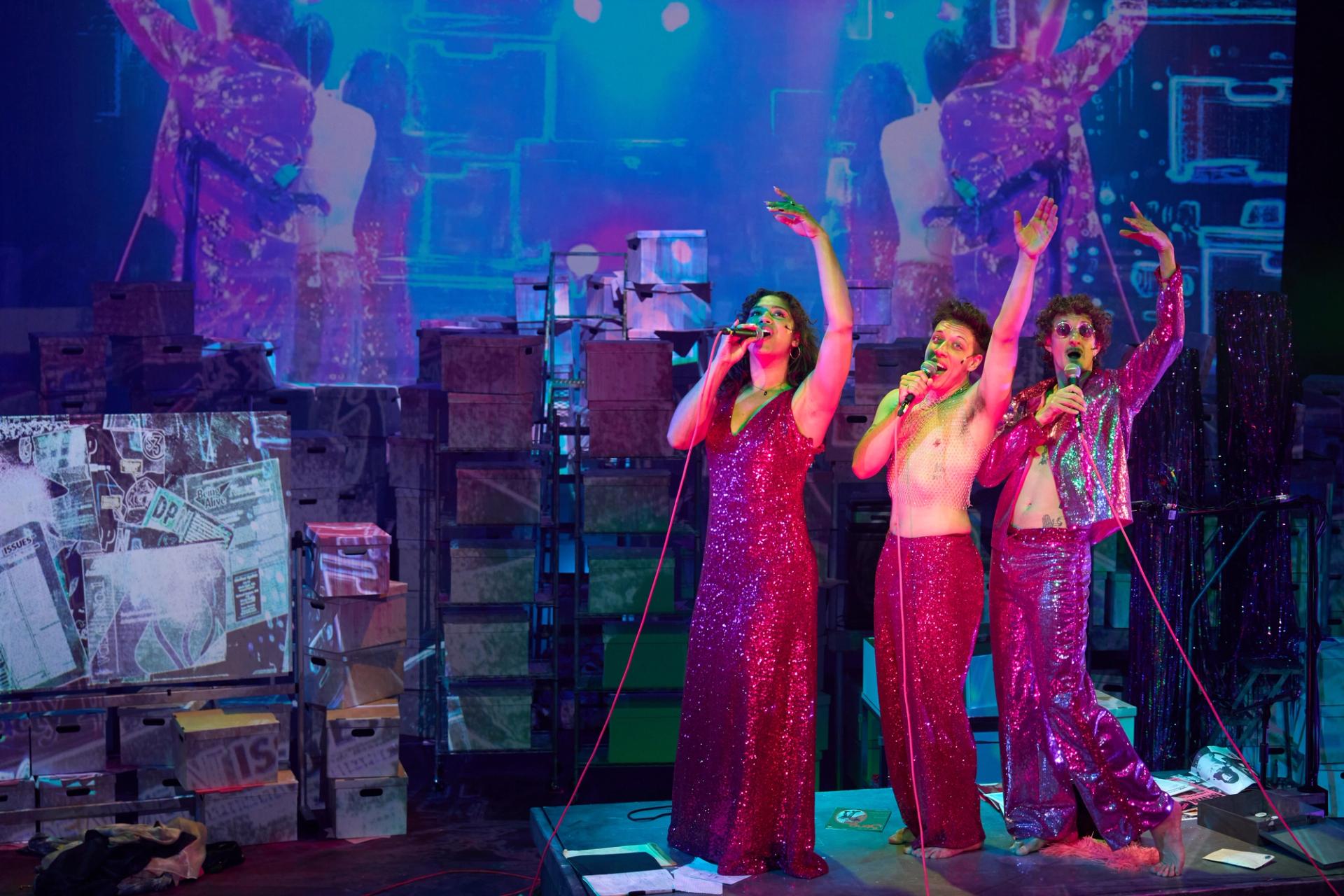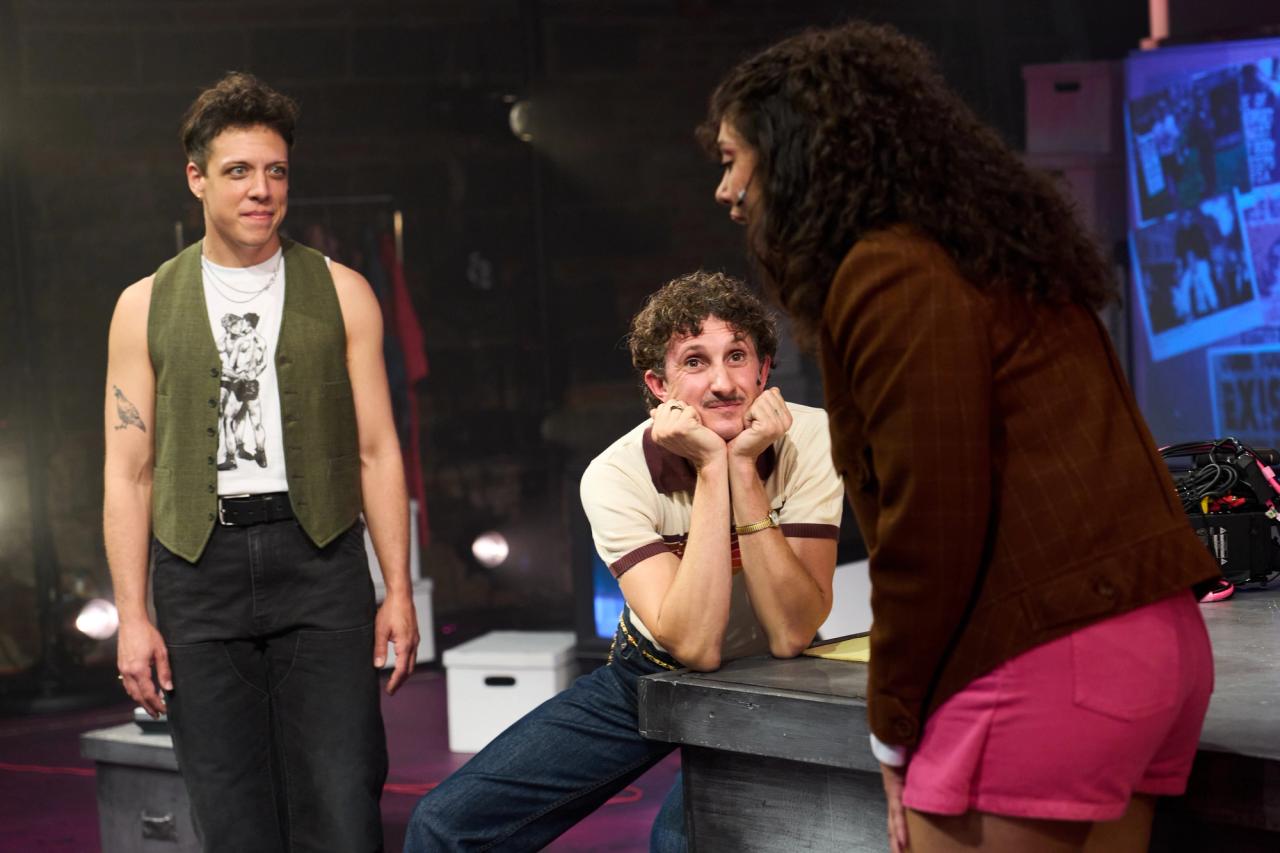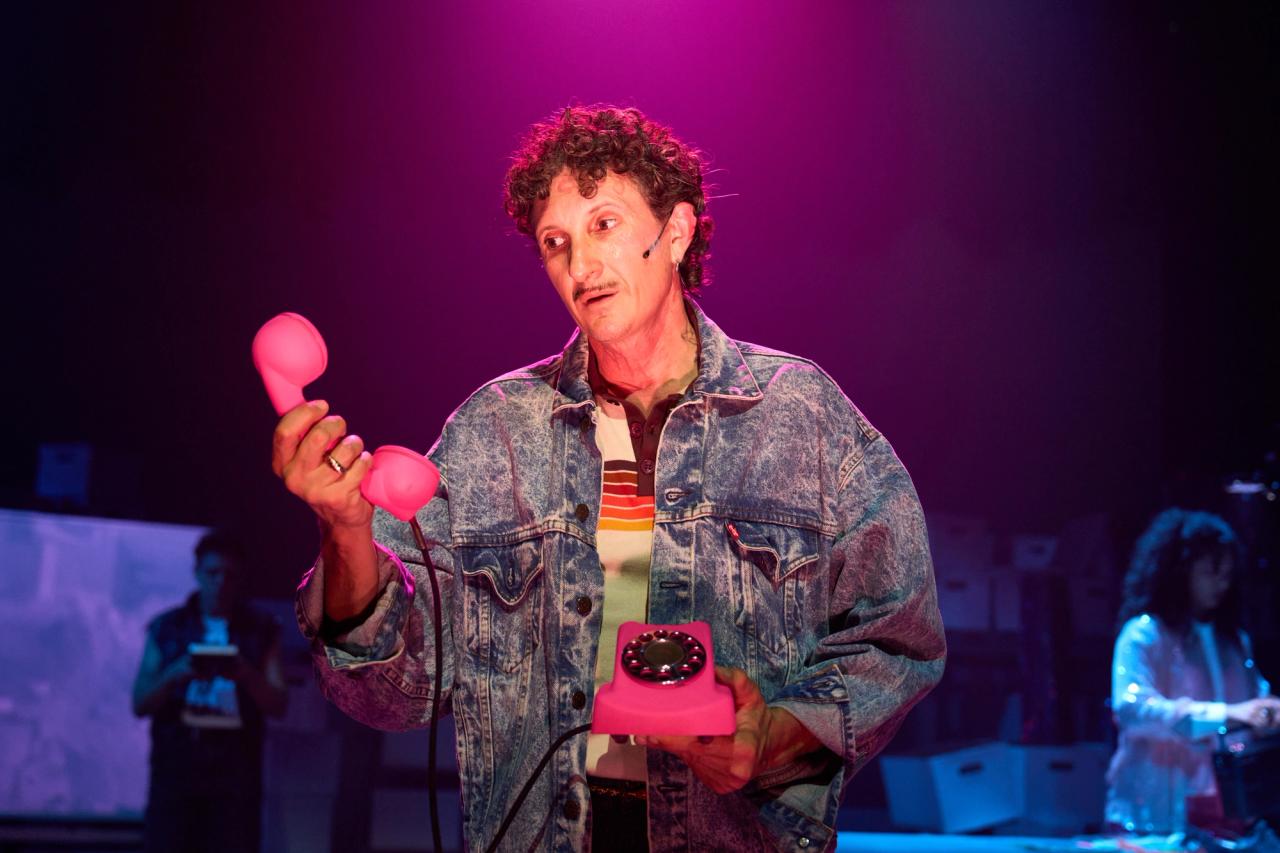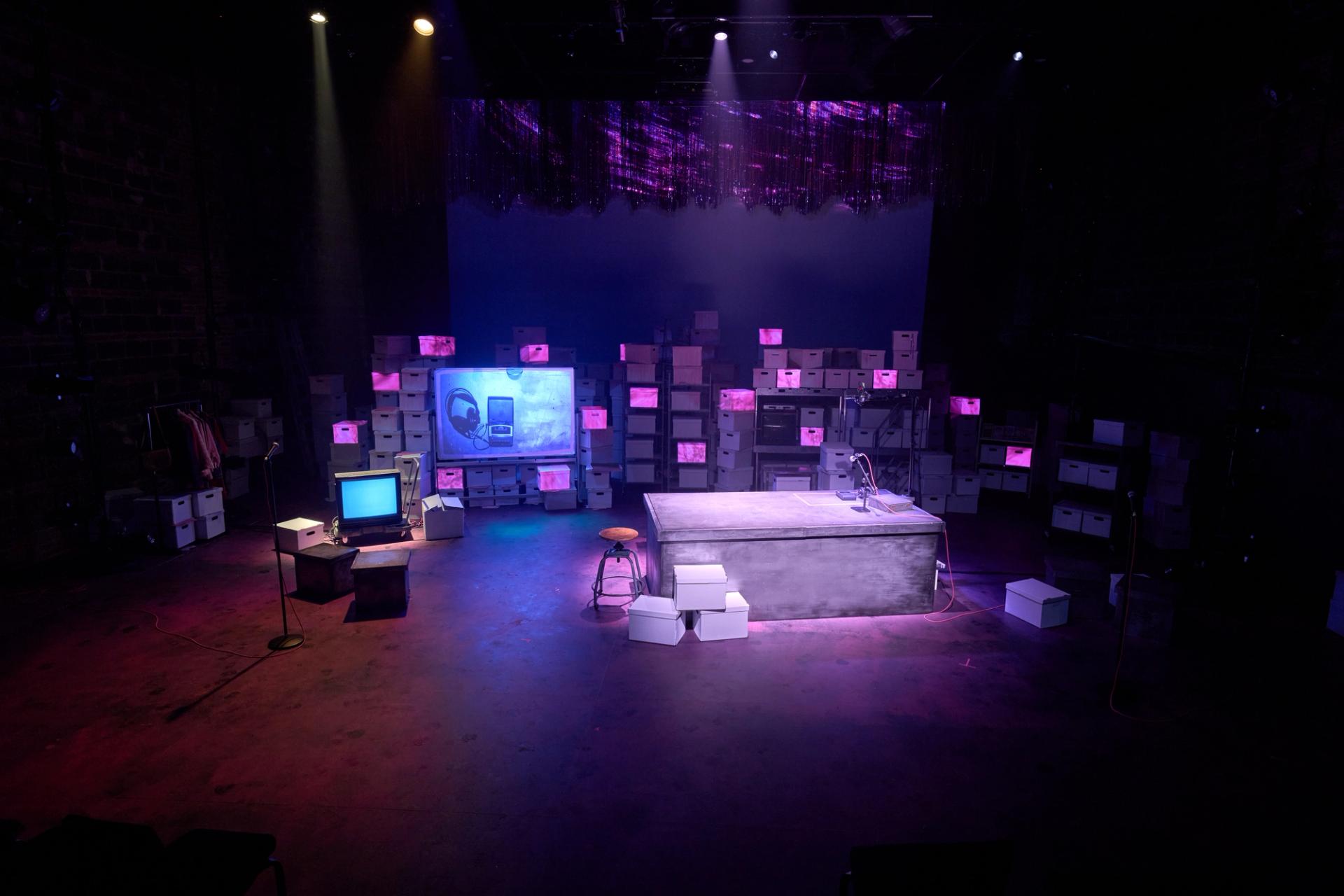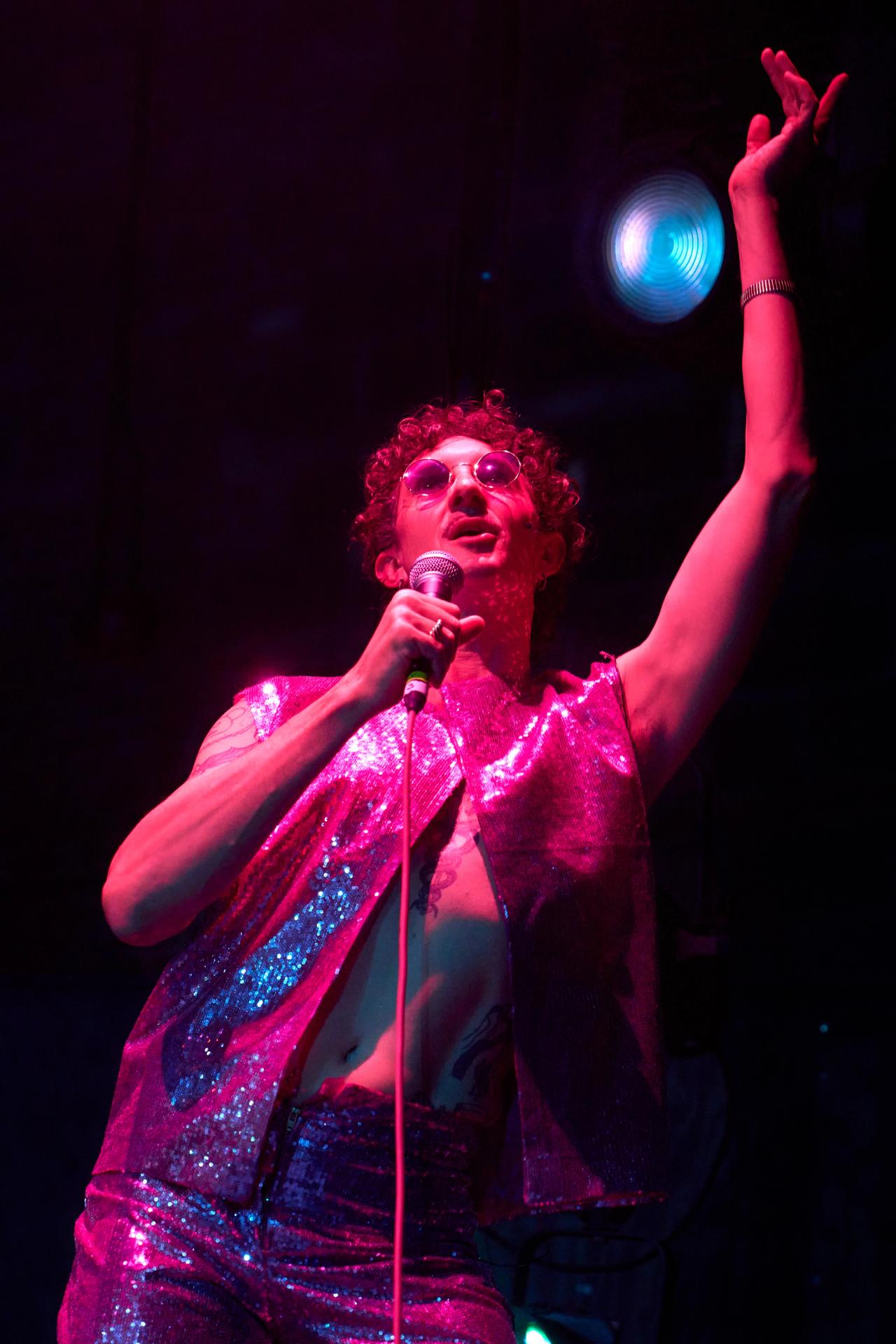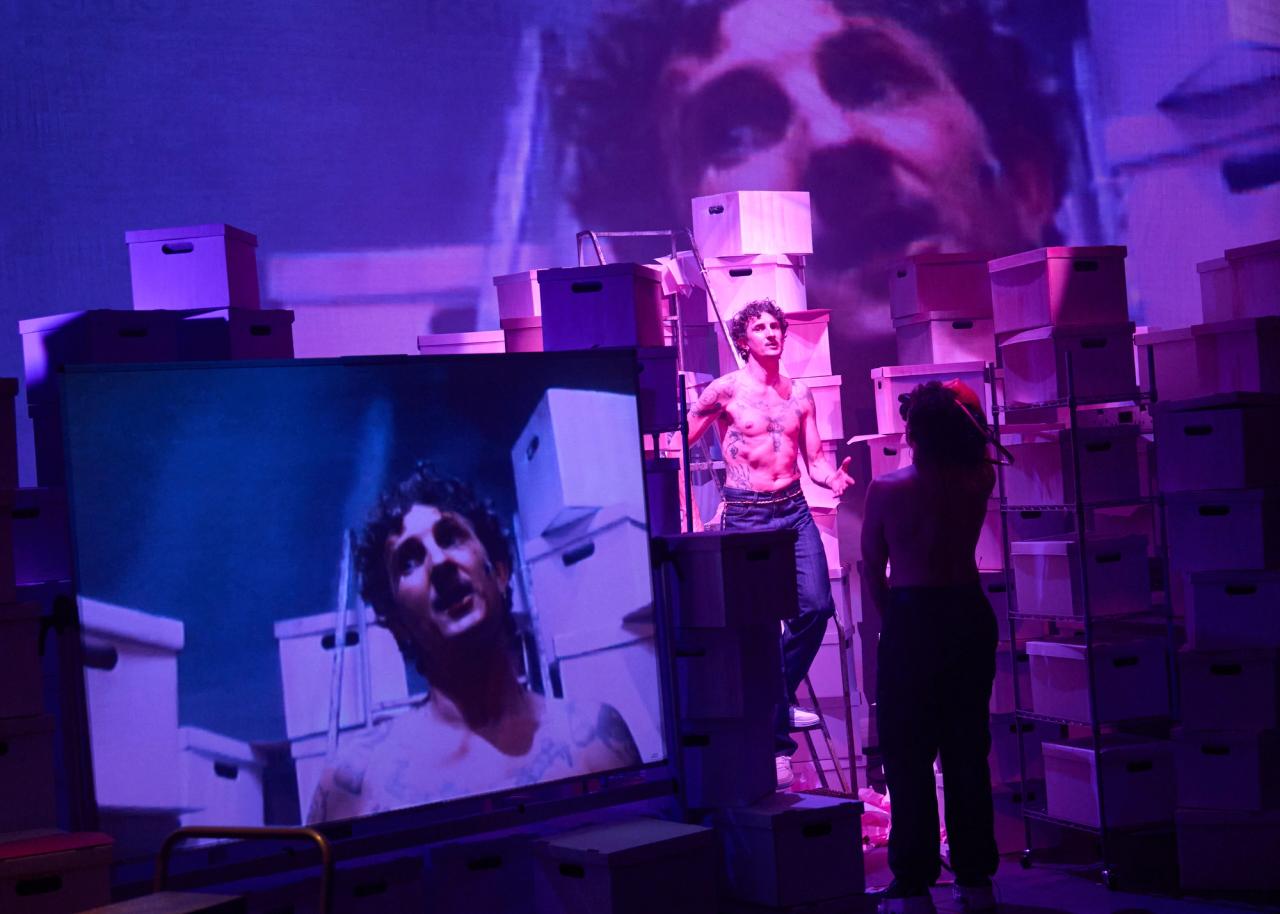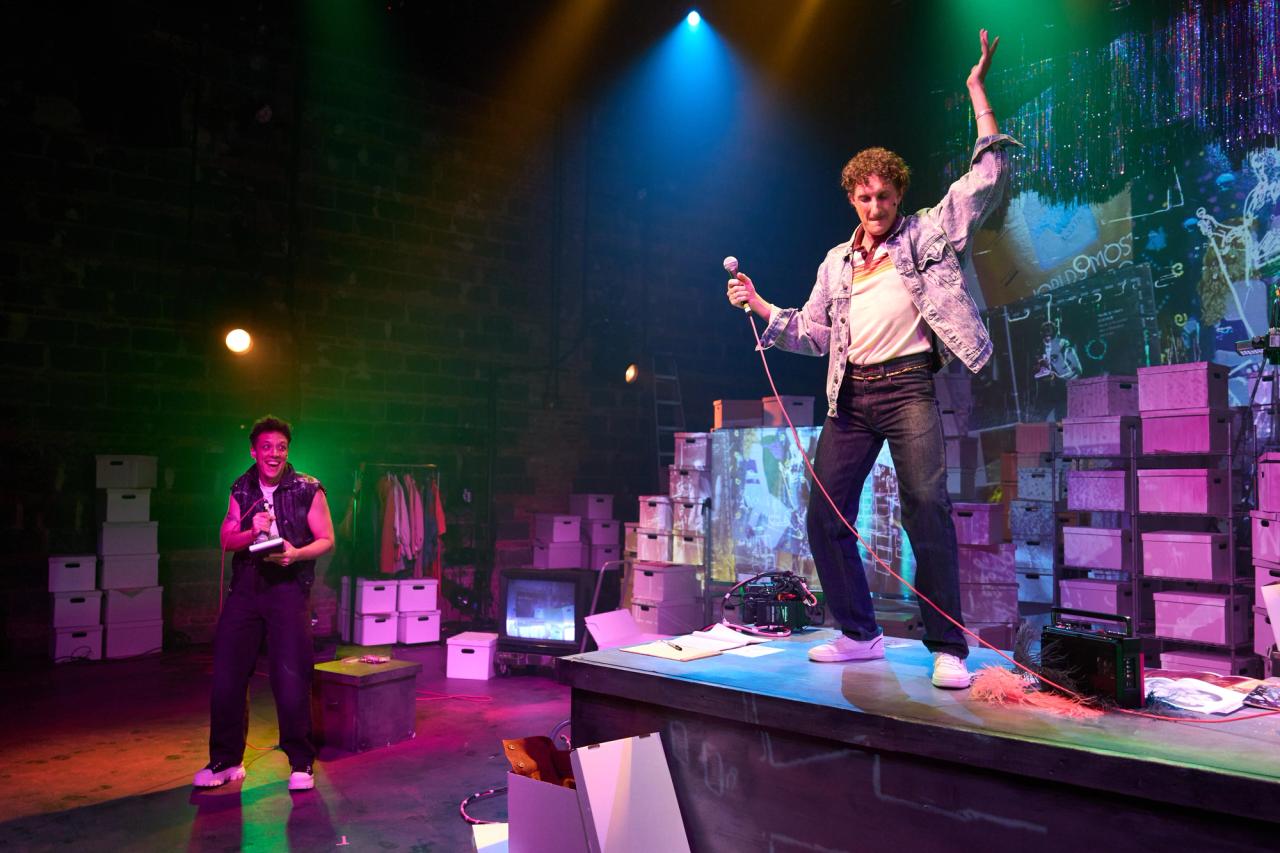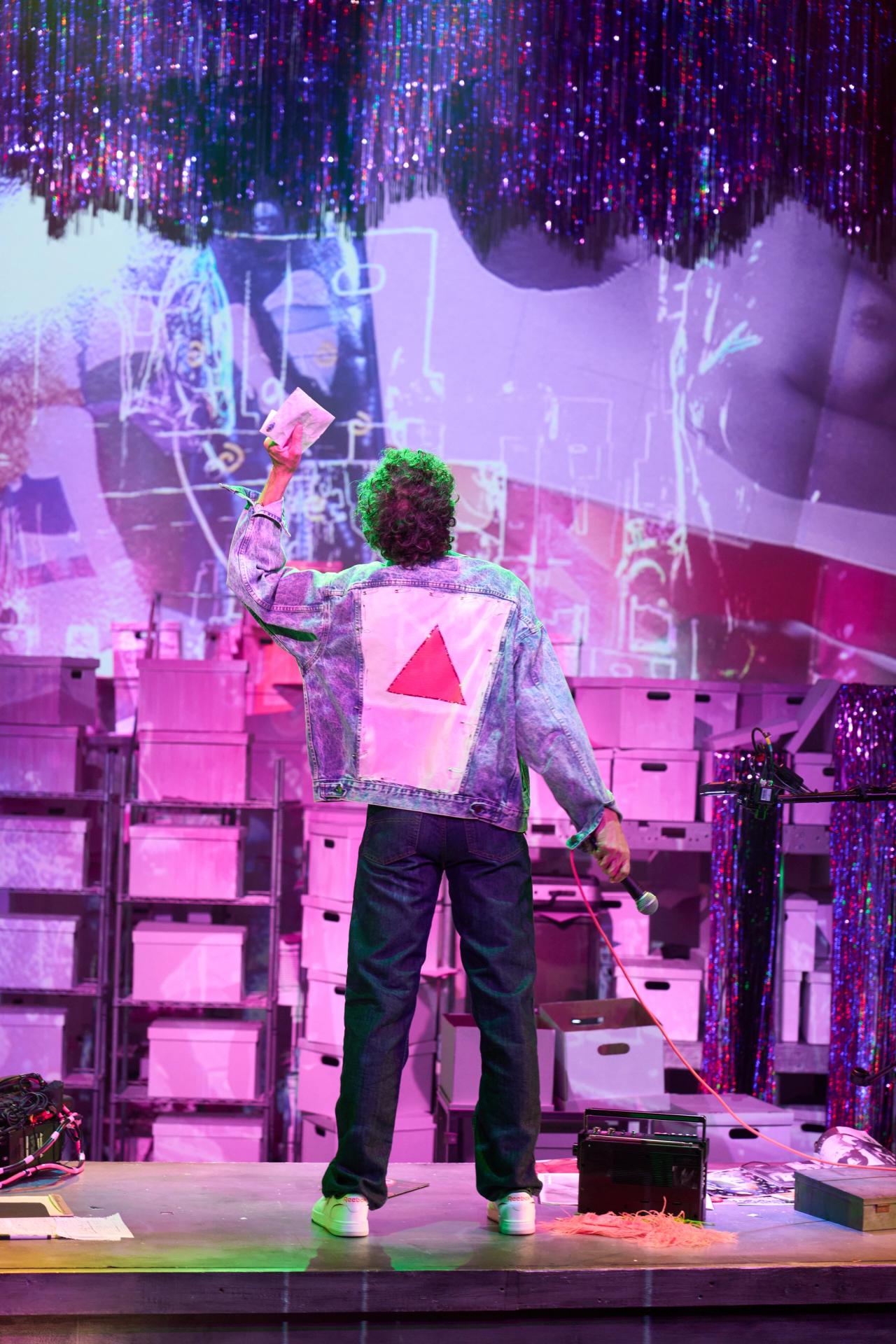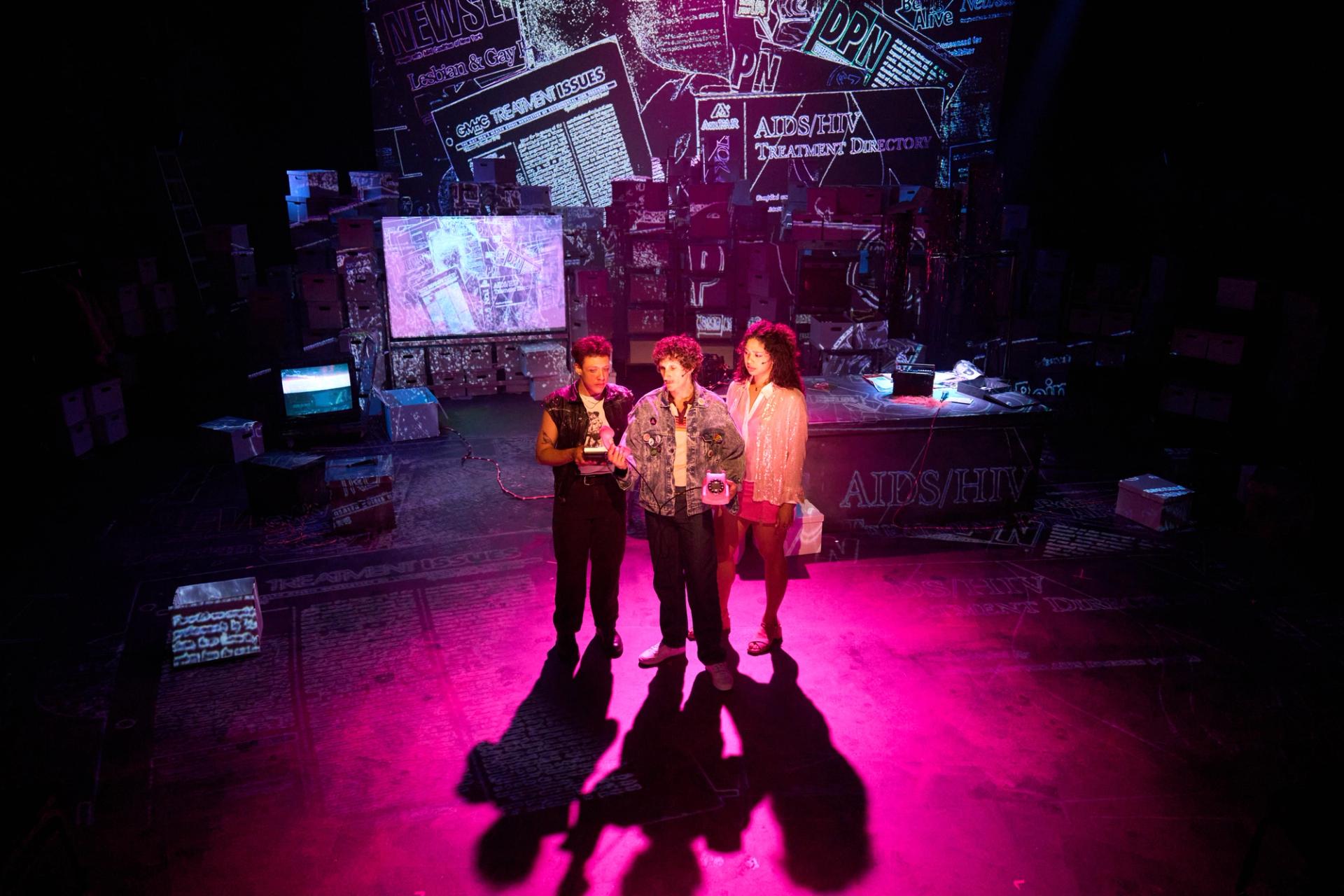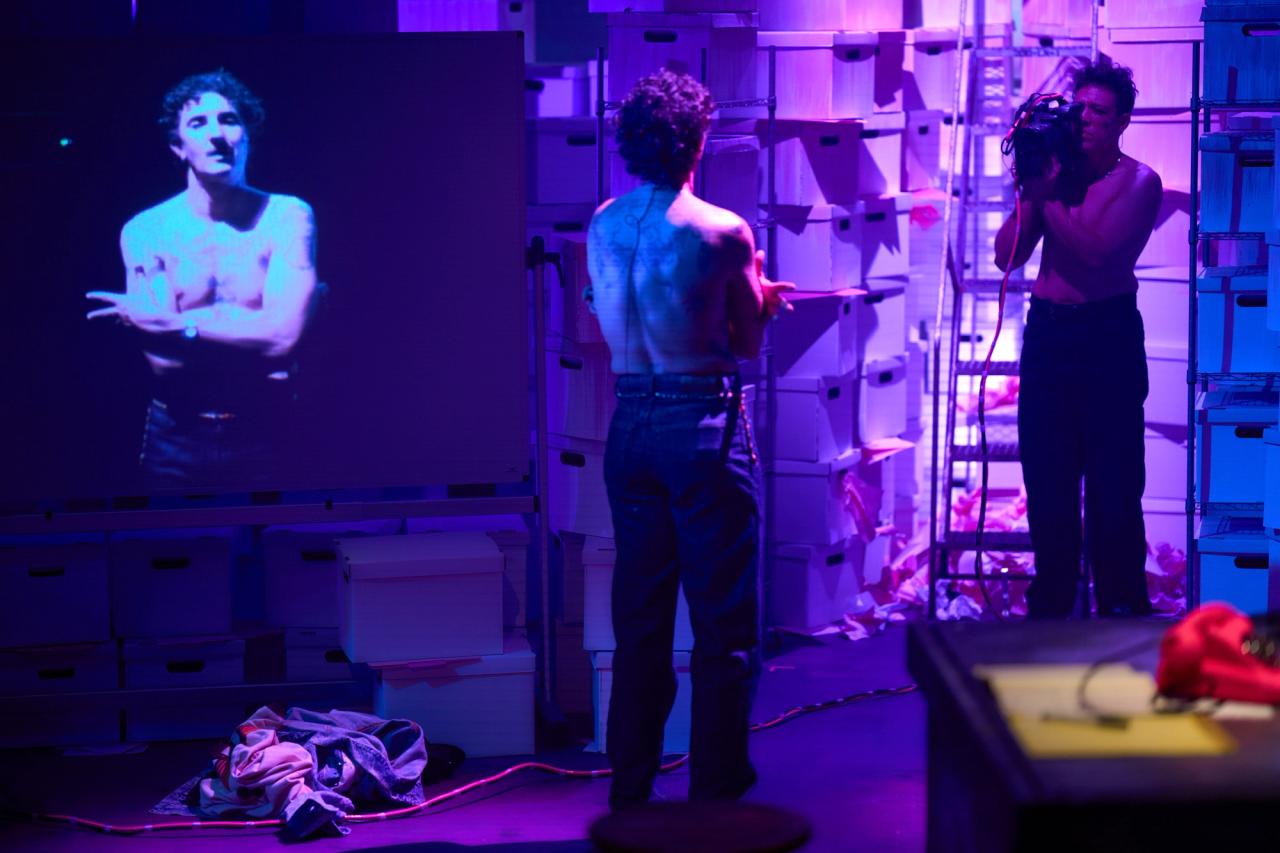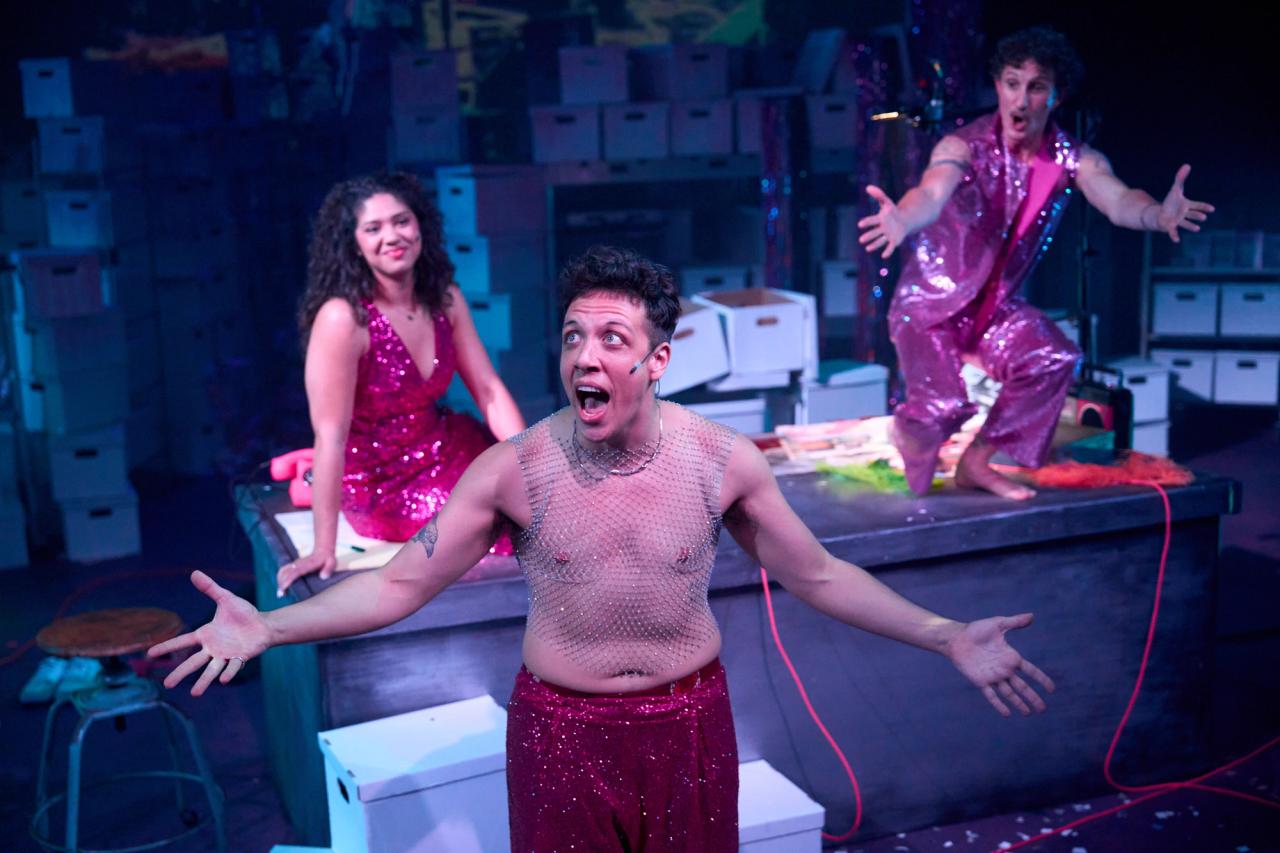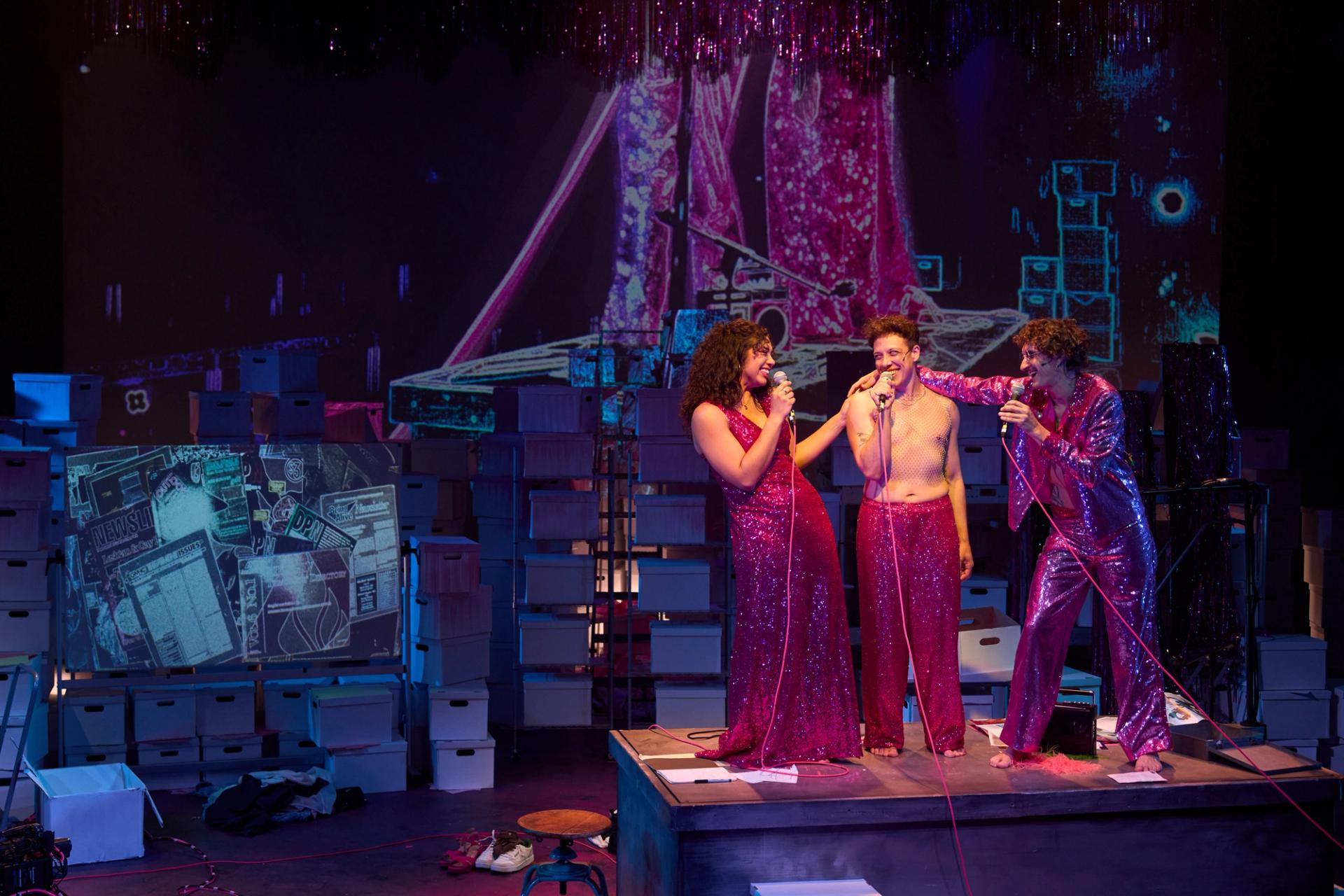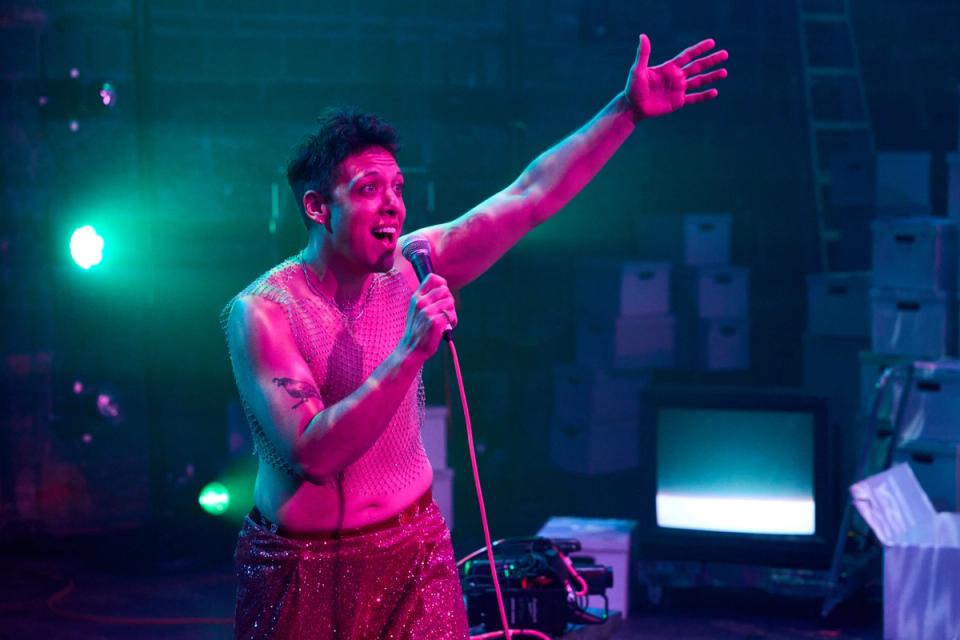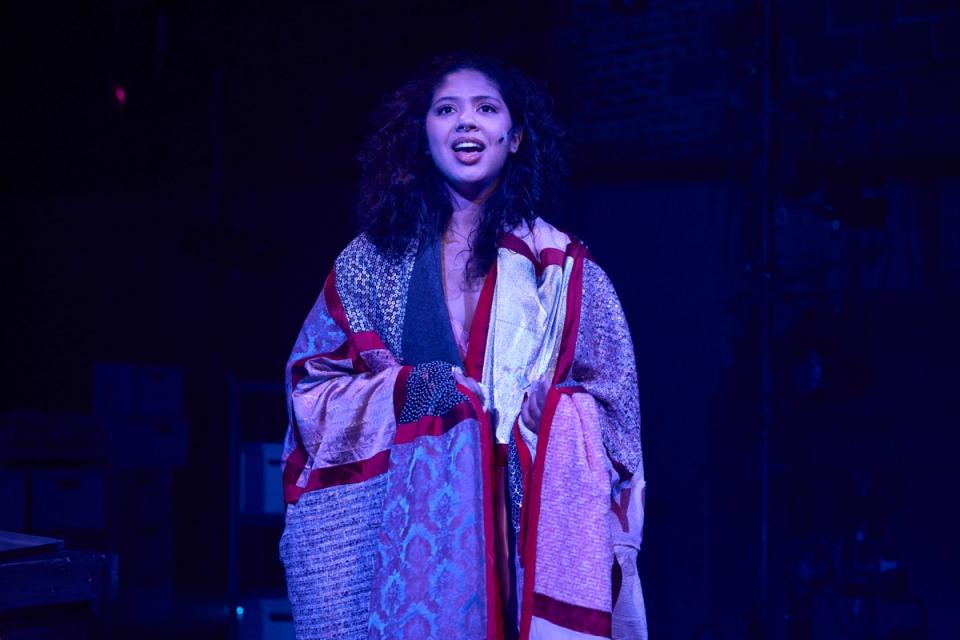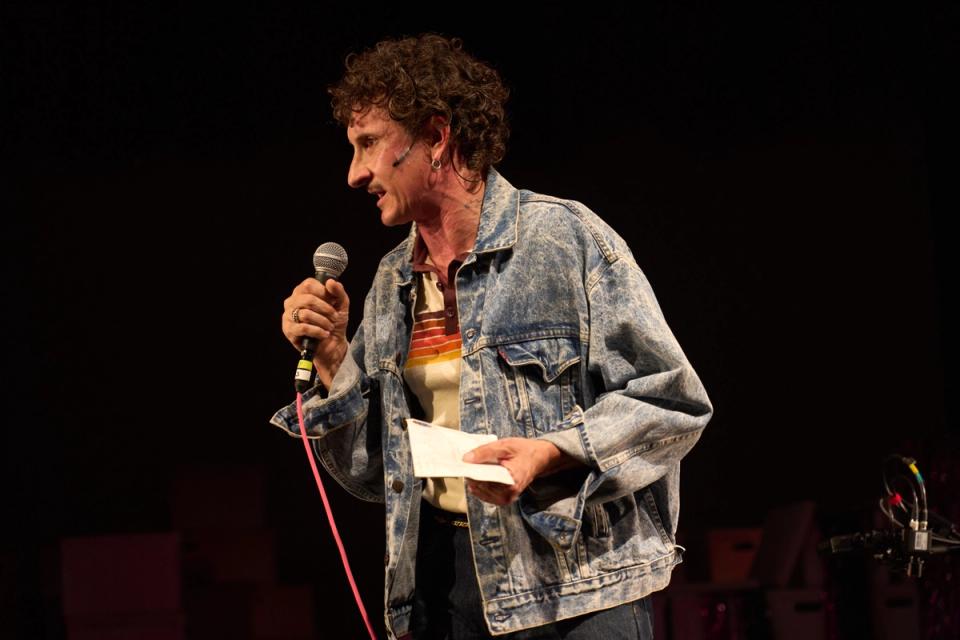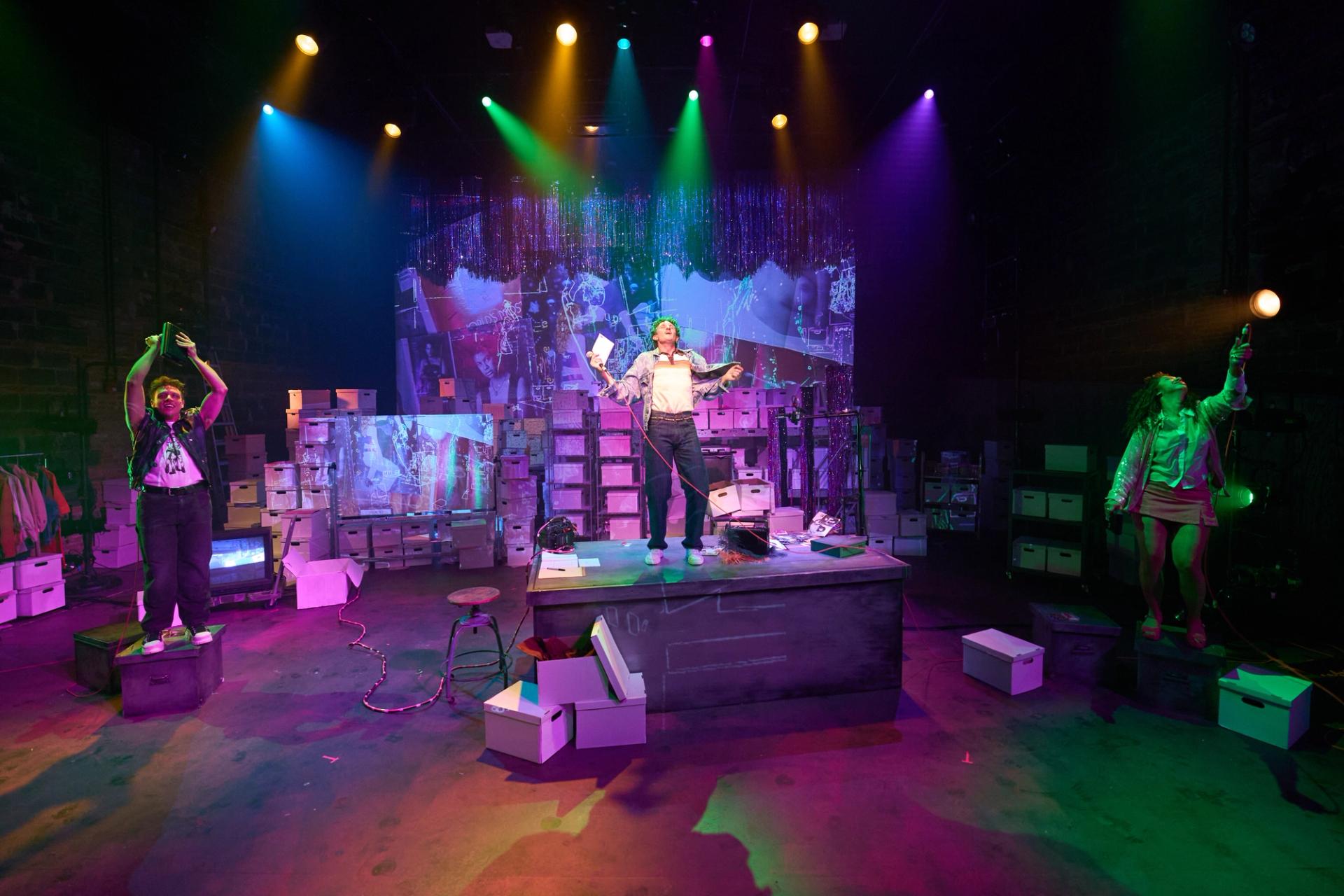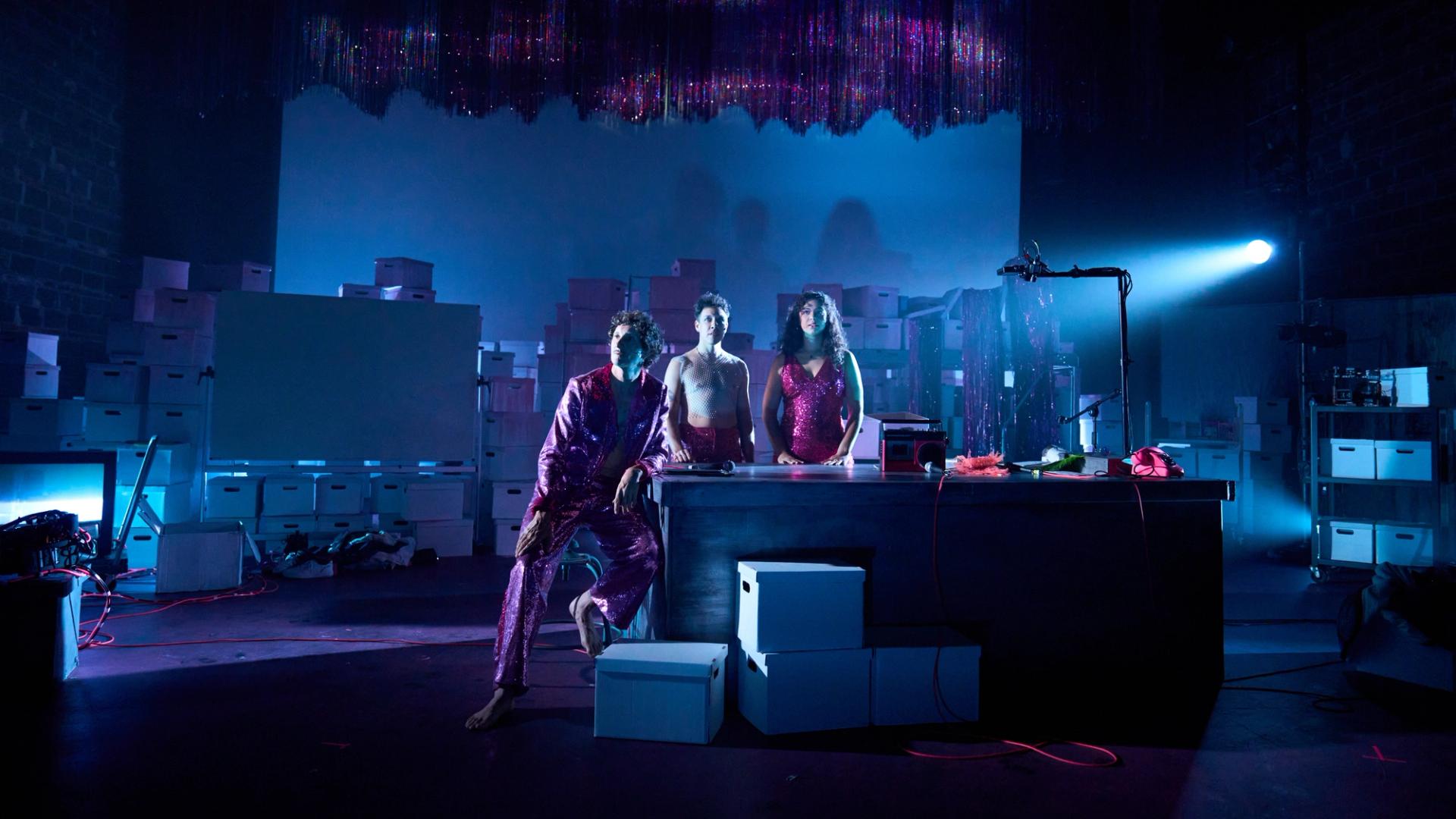the dance floor, the hospital room, and the kitchen table
the dance floor, the hospital room, and the kitchen table is a theatrical ritual of memory, a queer séance, and a reckoning with history that refuses to stay in the past. Blending live performance with archival audio, this intimate and electrifying work follows three queer researchers as they wade through the voices of those lost to—and those who survived—the HIV/AIDS epidemic. As they listen, dance, and debate, the archive begins to pulse around them, refusing to be forgotten. Part ghost story, part love letter, and part urgent call to remember, this performance asks: How do we honor our ghosts while also fighting for the living?
—
"Innovative and heart-touching." ~ BmoreArt
"Exquisite and f*cking brilliant." ~ The Bad Oracle
—
Written & Directed by Lyam B. Gabel. Media design by Joseph Amodei.
Future Ghost is a performance ensemble lead by Lyam B. Gabel and Joseph Amodei that creates media-integrated work exploring intimacy, memory, and futurity. Blending performance and new media, we craft immersive, deeply felt experiences that explore the ways technology shapes connection, storytelling, and presence. Our work invites audiences into shared moments of reflection and transformation, fostering what we call ‘epic intimacy’—a sense of closeness created through, rather than in spite of, mediation.
the dance floor, the hospital room, and the kitchen table is a National Performance Network (NPN) Creation & Development Fund Project co-commissioned by Contemporary Arts Center, New Orleans, Chatham University, and NPN. For more information: npnweb.org. the dance floor, the hospital room, and the kitchen table by Lyam B. Gabel received developmental support as part of the 2021 Director Residency Program of The Drama League of New York. (Gabriel Stelian-Shanks, Artistic Director; Bevin Ross, Executive Director). A version was workshopped at Carnegie Mellon University School of Drama in November 2019 and received additional support from the Carnegie Mellon University GSA/Provost GuSH Grant. This production was funded by a Lehigh University Faculty Innovation Grant.
Photography by Chris Ashworth.
